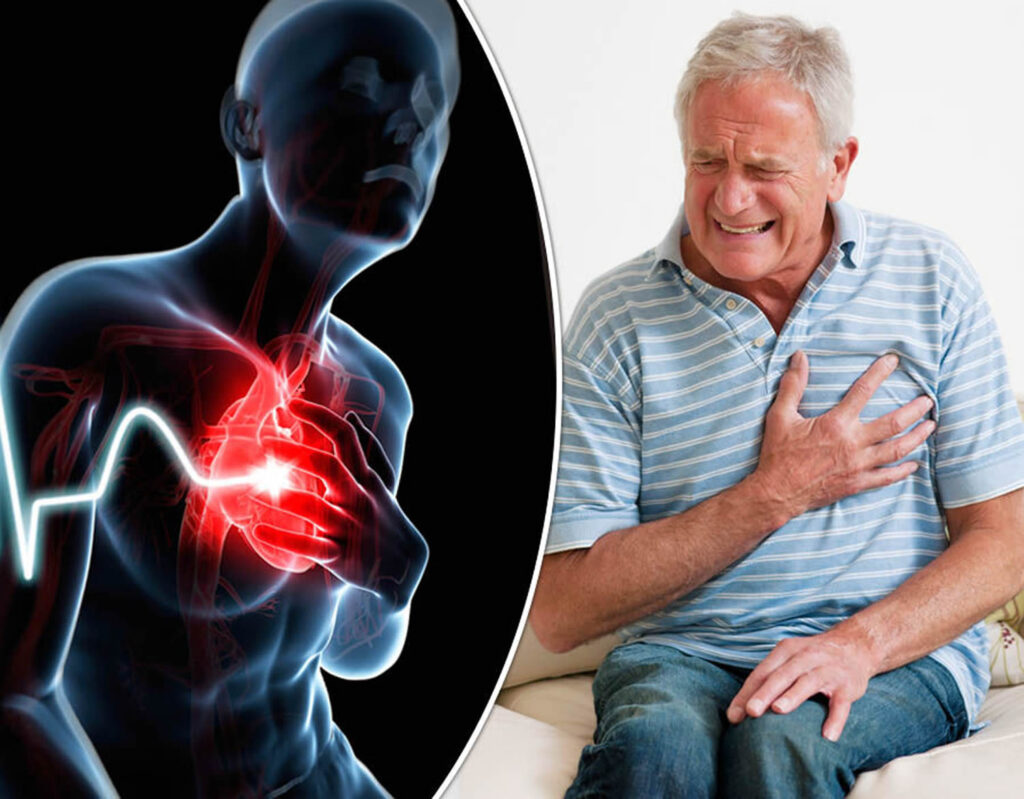Every year, millions of people around the world suffer from heart attacks, many of them
without warning. But health experts now say the real danger isn’t that the signs don’t
exist—it’s that we often don’t recognize them.
A heart attack rarely strikes without sending some early signals. Your body usually
whispers before it screams. The key is learning to listen.
The Unseen Enemy: Why Early Detection Matters
Heart disease remains the leading cause of death globally, including in India. Yet, most
of us continue to miss or dismiss the early signs.
“Time is muscle,” cardiologists often say—meaning the sooner you act, the more of your
heart muscle can be saved.
Ignoring the early symptoms can lead to irreversible heart damage or even sudden
cardiac death.
It’s not always a dramatic collapse like we see in films. Sometimes, it starts quietly,
perhaps with discomfort, a bit of fatigue, or a strange sensation in your body.
The Early Symptoms of a Potential Heart Attack
1. Chest Discomfort or Pressure
This is the most common early warning. It might not feel like sharp pain but rather a
pressure, squeezing, fullness, or a mild burning sensation in the center of the chest.
It can come and go and often lasts more than a few minutes.
2. Unexplained Fatigue
Feeling unusually tired, even after light activity, can be a silent red flag—especially in
women.
If you are suddenly exhausted without a clear reason, your heart might be struggling to
pump blood efficiently.
3. Shortness of Breath
If you find yourself breathless after simple tasks like walking a short distance or
climbing stairs, it could be an early indicator of heart trouble.
Sometimes, this may happen even while you are resting.
4. Pain in Arms, Jaw, Neck, or Back
Heart attack pain doesn’t always stay in the chest. It can radiate to other areas like the
left arm, upper back, shoulders, neck, or even the jaw.
Many people mistake this for muscle strain or acidity.
5. Cold Sweats
Suddenly breaking into a cold sweat, especially when paired with other symptoms, is a
classic warning sign.
If this happens without physical exertion, you should be concerned.
6. Nausea, Lightheadedness, or Dizziness
Some people, especially women, experience nausea or dizziness in the early stages.
They often think it’s food poisoning, indigestion, or dehydration when in fact, it’s their
heart sending distress signals.
7. Indigestion or Heartburn
While not always related to a heart attack, persistent indigestion or a feeling of fullness
in the stomach should not be ignored—especially if it comes with other symptoms like
sweating or chest discomfort.
Why Many People Miss the Signs
One of the reasons heart attack symptoms are often ignored is because they can be
subtle or mistaken for less serious issues like anxiety, fatigue, or indigestion.
“Men often delay going to the hospital because they expect a heart attack to feel like an
‘elephant on the chest,’” says Dr. Anil Mehra, a senior cardiologist in Delhi. “Women
may present with more unusual signs like jaw pain or extreme tiredness and get
misdiagnosed.”
When to Act
If you experience two or more of these symptoms at the same time, or if they persist
for more than a few minutes, seek immediate medical help.
Do not wait for the pain to become severe. Acting quickly can save your life.
Conclusion: Listen to Your Body
Your body often gives you a second chance.
The question is: Will you listen?
Heart attacks don’t always arrive like storms—they sometimes knock quietly first.
Knowing the early symptoms and not brushing them off as something minor could make
the difference between life and death.

